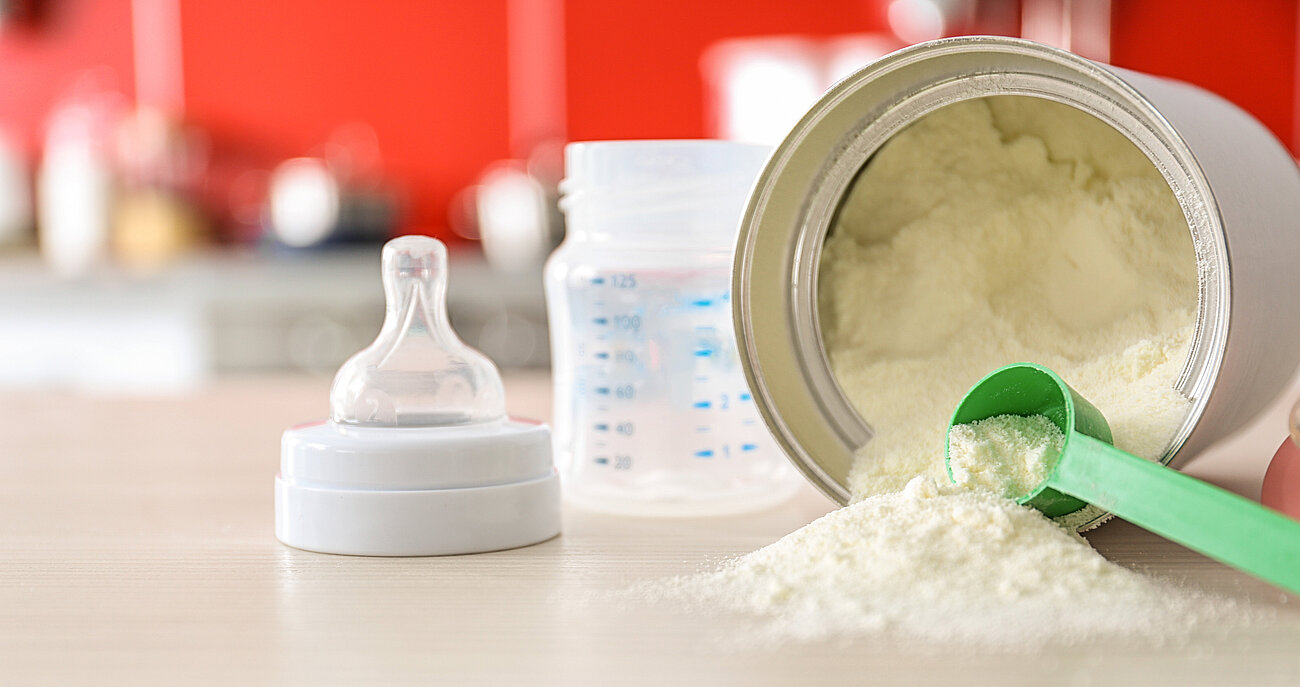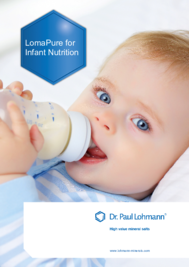Close Menu
© 2025 Dr. Paul Lohmann GmbH & Co. KGaA
Powdered infant formula is one of the most sensitive applications in food industries. An exceptional high standard in quality and documentation is of utmost necessity for the particularly vulnerable: infants.

As we deliver on full traceability, an advanced production process, extensive testing of all products and an experienced technical support we are the preferred partner for sensitive applications, especially for the baby food industries.
Since infants have particular dietary needs and a vulnerability to heavy metal contaminants, our LomaPure product concept helps manufacturers of baby food to meet the high quality needs.
With the LomaPure-concept we can offer Mineral Salts manufactured under the highest quality standards exclusively in Germany. Our Minerals, designed for the use in infant nutrition, meet the purity criteria needed for this sensitive application and exceed the current pharmacopoeias and food standards by far.
As leading manufacturer and developer of Mineral Salts, tailor-made products can be realized and delivered in line with individual specifications.
By carefully choosing quality raw materials and their rigorous controls we take the first step to a production of high value Mineral Salts. Even more relevant and the second step – especially in terms of low impurity levels of metal contaminants – is our special design process removing heavy metals within the production process. This, in addition to our extensive analytical efforts, results in highest quality products.
Strict microbiological parameters as well as conformity with extra-low levels of contaminants like chlorate/perchlorate can be met.
Moreover, we pay particular attention to particle size consistency of our products. For infant formulas particle size is a major consideration as it can impact the formulation homogeneity and stability. Especially our range of micronized Minerals (d50 < 3 µm) provides several advantages: A higher assimilation of the Mineral Salt by the organism is accompanied by keeping insoluble salts suspended in liquid and eluding the sensory detection in mouth.




Calcium
Iron
Magnesium
Zinc
Copper
Iodine
Manganese
Potassium
Sodium
Sample Request
Product Finder
Contact